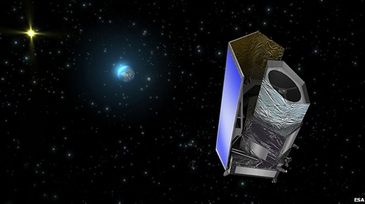
What do I mean by this? You could say that the culmination of our efforts to understand the nature of what the universe is made of is the European Large Hadron Collider (LHC). This huge scientific and engineering enterprise (to say nothing of the huge cost) has been devised to try to understand the underlying structure of the sub-atomic world that makes up everything we see around us. However, it is a huge shock to realise that astrophysicists are now telling us that only 4% of the observed universe is made up of the sub-atomic particles with which we have become familiar. It's even more of a shock to realise that the other 96% of the universe is made of something the nature of which we know nothing about at all - 'dark energy' and 'dark matter'! It has been estimated that 73% of the universe comprises dark energy, and 23% dark matter. These estimates have come principally from the effect this unseen material has upon the large scale dynamics of the expansion of the universe.
It is for this reason that the European Space Agency member states decided to go ahead with a new project, entitled Euclid, at a recent meeting in Paris. The Euclid spacecraft will be designed to study the nature of these unknown (but dominant) constituents of the cosmos.
However, don't hold your breath - unfortunately the spacecraft is not due for launch until 2019, when it will take up residence in an operational orbit around the Earth-Sun L2 point.
 RSS Feed
RSS Feed
